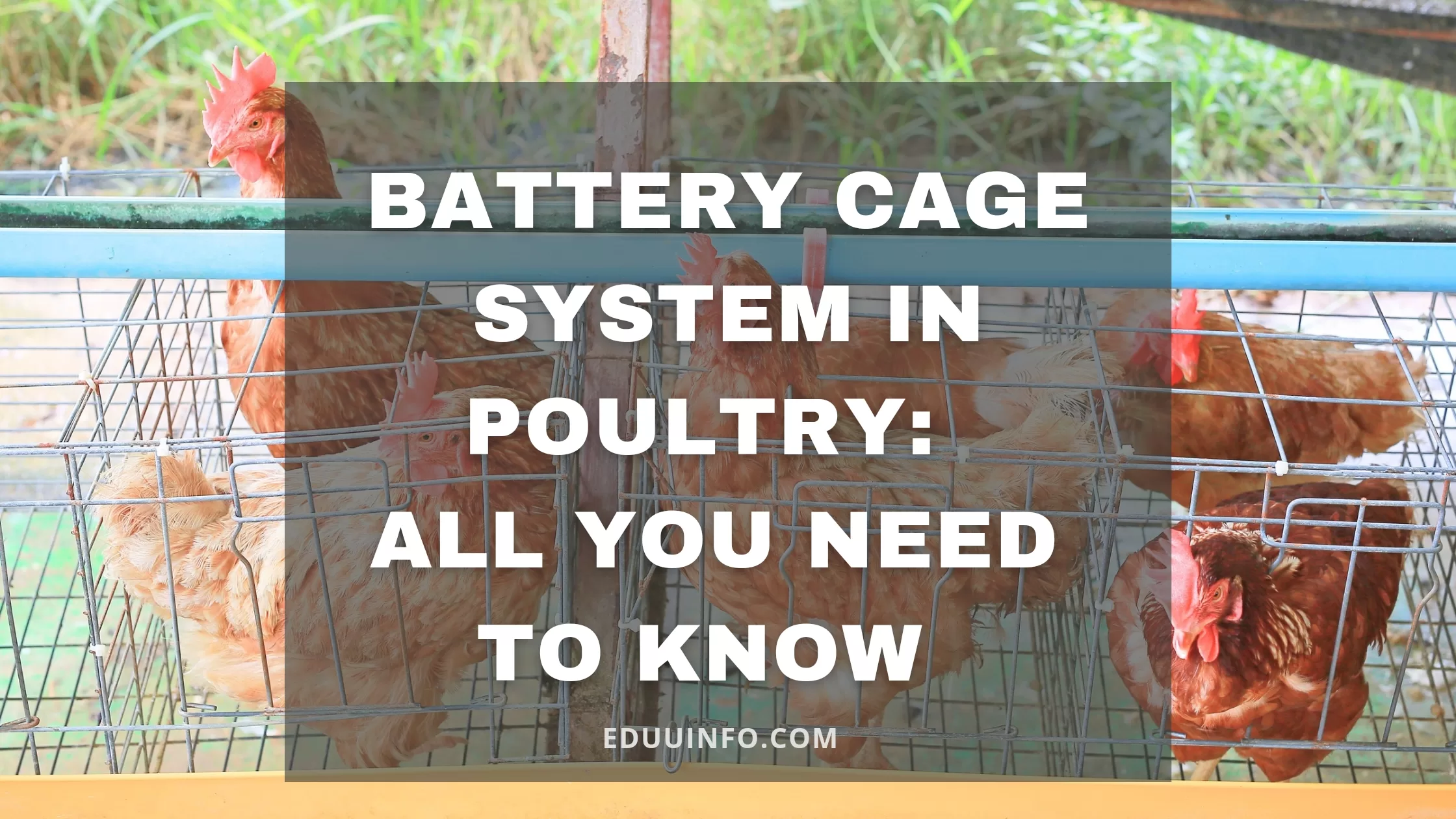Battery Cage System in Poultry 2024: All you need to know
So, you have heard so much about the battery cage system in poultry and you are wondering what it is and how you can use it.
Congratulations to you for finding this post because this is the best of it you will find.
In this article, we will discuss the various aspects of battery cage systems, including the cost, best options for layers, advantages, disadvantages, and more.
Whether you are a farmer, researcher, or simply curious about poultry farming, this guide will provide you will all you need to know.
See Best Feed for Broilers in Nigeria
What is the Battery Cage System in Poultry?
The battery cage system in poultry refers to a housing method where chickens are confined in small wire cages.
These cages are usually stacked in multiple tiers, allowing for efficient use of space in commercial poultry farms.
In addition, it aims to maximize egg production by providing a controlled environment for the birds.
Cost of Battery Cage System in Poultry
Investing in a battery cage system requires careful consideration of the costs involved.
The expenses involved include the initial setup, maintenance, and operational costs.
However, The prices can vary depending on factors such as cage quality, capacity, and additional features like automated feeding and watering systems.
Hence, It is recommended to consult with suppliers or experts in the field to get accurate cost estimates tailored to your specific requirements.
What is the Best Battery Cage System for Layers?
When it comes to selecting the best battery cage system for layers, several factors should be taken into account.
You should consider the breed of the layers, farm size, available space, and the overall well-being of the birds.
Some popular options in the market include enriched colony cages, furnished cages, and multi-tiered systems.
Hence, It is important to choose a system that prioritizes the welfare of the birds while optimizing egg production.
Read How to Grow Broiler Chickens Fast
Advantages of Battery Cage System in Poultry
Having discussed what the Battery Cage System in Poultry is and the cost of having one, here is the advantage of it
- Increased Egg Production: The battery cage system allows for more efficient monitoring and management of the layers, which may result in higher egg production compared to alternative housing methods.
- Disease Control: The controlled environment of battery cages helps minimize the risk of disease transmission among birds, promotes better overall health, and reduces the need for antibiotics.
- Easy Egg Collection: The design of battery cages makes it easy to access eggs, ensures convenience, and reduces the chances of breakage or contamination.
- Space Optimization: When you use vertical space, the battery cage system maximizes the number of birds that can be accommodated in a given area
This will make it suitable for commercial poultry farming.
Disadvantages of Battery Cage System in Poultry
As it had good sides so also does it have bad sides. Let’s look into that
- Restricted Movement: Battery cages limit the natural movement and behaviors of the birds, leading to potential welfare concerns.
- Lack of Enrichment: The confined space in battery cages may not provide sufficient opportunities for the birds to exhibit natural behaviors, such as nesting and perching.
- Feather and Foot Problems: Prolonged confinement in battery cages can contribute to issues like feather loss and foot disorders, which can affect the overall health and welfare of the layers.
- The use of battery cages has faced criticism from animal welfare organizations and consumers who advocate for more humane alternatives.
You may also like How to Start Poultry Farm 2024: Step-by-Step Guide for Beginners
Conclusion
In conclusion, the battery cage system in poultry is a widely used method for commercial egg production.
While it has advantages such as increased productivity and disease control, it also has drawbacks related to animal welfare and ethical concerns.
As the poultry industry evolves, there is a growing emphasis on adopting alternative housing systems that prioritize the well-being of the birds.
Ultimately, the choice of housing system should consider a balance between productivity, animal welfare, and consumer preferences.
We hope this article has provided you with useful information on the Black soldier fly farming in Nigeria
If you have any questions or comments, please feel free to leave them in the comment section below.
Thank you for reading
FAQs
Are battery cages still legal for poultry farming?
The regulations regarding battery cage systems vary across different countries.
While some countries have banned or phased out the use of battery cages, others still allow their use under certain conditions.
Hence, It is important to know the specific regulations in your area before you use it.
Can battery cage systems be modified to improve bird welfare?
Yes, there have been advancements in cage design and management practices to improve bird welfare within battery cage systems.
These changes include providing enrichments such as perches, nest boxes, and dust-bathing areas to enhance the living conditions for the layers.
What are the alternatives to battery cage systems?
Alternative housing systems for layers include free-range systems, aviaries, and barn systems.
These systems provide more space and opportunities for the birds to engage in natural behaviors while still allowing for efficient egg production.
Are there any health risks associated with consuming eggs from battery cage systems?
Eggs produced in battery cage systems undergo strict quality control measures to ensure they meet food safety standards.
When handled and cooked properly, eggs from battery cage systems are safe for consumption.


